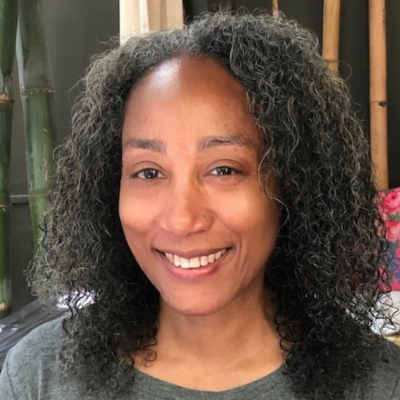Get It Done: Fast-Draft Your Novel in 13 Weeks
with Troy Wilderson

September 11, 2024
13 Weeks
$845.00
Zoom calls Saturdays from 4-6 P.M. Eastern
In Get It Done, we’ll focus on writing your novel above all else.
This course is for aspiring and experienced writers of all levels, genres and backgrounds, who have a solid idea for a novel and are motivated to write a complete first draft in thirteen weeks. That is a lofty goal and you’ll need support along the way to get it done. Together, we will build a supportive writing community, and you will receive constructive feedback each week from me and your workshop partners. We will motivate and support each other as first readers throughout the drafting process.
You will write up to 6,000 words a week, for 13 weeks. While the workshop component is the backbone of the course, there will also be instruction on craft–including the classic three-act structure. Each weekly writing submission will be reviewed and workshopped. You will receive actionable feedback to use in future revisions, along with tailored resources and further readings to help you learn as you write.
You’ll come away from this course with a completed first draft of your novel, and a solid plan for what’s next.
Learning and Writing Goals
Learning Goals:
In this course, you will:
- Analyze the pros and cons of prologues and/or epilogues.
- Understand theme, pacing, and characterization as backbones of solid storytelling.
- Examine the purpose and placement of backstory.
- Reflect upon your reasons for writing your story, and how to keep those reasons in sight.
- Learn strategies for building a sustainable writing practice for the course and future revision.
Writing Goals:
In this course, you will complete a solid first draft of your novel (about 72,000 words), by:
- Building a premise for your novel.
- Creating a chapter-to-chapter outline of what your first draft’s plot points should be.
- Writing up to 6,000 words each week.
Zoom Schedule
Live class sessions will be held via Zoom on Saturdays, beginning September 14th, from 4-6 pm Eastern.
Please note, we will not meet the week of Thanksgiving. The courses 13 lectures will be spread out over 14 weeks.
Weekly Syllabus
Week 1: The Outline—Laying down the bones.
You’ll be guided on how to look at your synopsis and begin pulling it apart to create an outline. You’ll be introduced to the three-act structure, and you will identify the scenes in your synopsis that may be out of order or if there are plot holes.
There will be time in class to work on outlining your novel.
Assignment—refine your outline per the lesson.
Week 2: Act One—What happens in the first third of a novel
What needs to happen in the beginning? How much world building is necessary? Do you really need that prologue? How can you ensure you have dimensional characters?
Assignment—begin drafting your first chapter(s) per the lesson. Fill out the character dossiers as much as you can, understanding they are a work-in-progress.
Week 3: First Lines That Will Wow!
We’ll examine some dynamic opening lines then you’ll dissect yours to see how impactful and engaging it is—as well as consider if it is doing its job setting up the book. Then we’ll look at the inciting incident and its placement.
There will be time spent workshopping pages from the works-in progress.
Assignment—craft a new opening line per the objectives outlined in the lesson and ensure the narrative that follows flows and builds. Also, you’ll make comments on the submitted pages of your peers for in-class workshop discussion.
Week 4: Protagonists, Antagonists, and Arcs.
You’ll comb through your work-in-progress to ensure that you’ve done the most dynamic job introducing your protagonist, the antagonist, and how you’ve established their respective character arcs. Also, you’ll look at who the supporting characters are and what makes them interesting and distinct and ensure any dialogue is compelling and natural.
There will be time spent workshopping pages from the works-in progress.
Assignment—continue drafting your pages per the lesson. Also, you’ll make comments on the submitted pages of your peers for in-class workshop discussion.
Week 5: Plot and Pacing.
You’ll look through your work-in-progress to assess whether you’ve set up the plot and are pacing it optimally per the requisites of the first act.
There will be time spent workshopping pages from the works-in progress.
Assignment—continue drafting your pages per the lesson. Also, you’ll make comments on the submitted pages of your peers for in-class workshop discussion.
Week 6: Act Two—Making sure the middle doesn’t get muddled.
You’ll learn what “rising action” means and how it relates to your novel’s climax. There will be an in-class exercise where you’ll refer back to your outline and make sure that you’re on track—and if not how to get back on!
There will be time spent workshopping pages from the works-in progress.
Assignment—continue drafting your pages per the lesson. Also, you’ll make comments on the submitted pages of your peers for in-class workshop discussion.
Week 7: Raising the Stakes.
You’ll assess what is at stake for your protagonist and decide whether it needs bolstering.
There will be time spent workshopping pages from the works-in progress.
Assignment— continue drafting your pages per the lesson. Also, you’ll make comments on the submitted pages of your peers for in-class workshop discussion.
Week 8: Looking Back Before Looking Forward.
You’ll look at your outline and your work-in-progress and assess if the story is ready for the big moment of your novel—the climax! Even in a quiet novel, there has to be some event or inner conflict that comes to a head for your protagonist.
There will be time spent workshopping pages from the works-in progress.
Assignment—continue drafting your pages per the lesson. Also, you’ll make comments on the submitted pages of your peers for in-class workshop discussion.
Week 9: Act Three—Bringing your novel to a close.
What is falling action? Are you ready to start “falling,” or are you still in Act Two?
There will be time spent workshopping pages from the works-in progress.
Assignment—continue drafting your pages per the lesson. Also, you’ll make comments on the submitted pages of your peers for in-class workshop discussion.
Week 10: Deep Look at Themes, Subplots, and Backstory.
You’ll refer back to your outline to see if your themes have solidified, subplots are resolved (or are being tied up), and determine if there is sufficient backstory on the page.
There will be time spent workshopping pages from the works-in progress.
Assignment—continue drafting your pages per the lesson. Also, you’ll make comments on the submitted pages of your peers for in-class workshop discussion.
Week 11: Satisfying Resolutions and What it Means to be Resonant.
You’ll examine the different ways to end a novel. You’ll also look at whether all of your arcs and subplots are actively being resolved.
There will be time spent workshopping pages from the works-in progress.
Assignment—continue drafting your pages per the lesson. Also, you’ll make comments on the submitted pages of your peers for in-class workshop discussion.
Week 12: “The End”—Sublime last lines.
We’ll examine some classic last line examples and discuss why they are successful.
There will be time spent workshopping pages from the works-in progress.
Assignment—continue drafting your final pages per the lesson. Also, you’ll make comments on the submitted pages of your peers for in-class workshop discussion.
Week 13: Down to the Line—How to edit your own work at the sentence level.
You’ll learn what craft issues to look for and how to edit your pages on a sentence level. Too many ten word sentences in a row? Slipping into the passive voice? Are there point of view snafus? Not quite finished with your novel? There will be an in-class exercise to assess how “done” your manuscript is and developing a “next-steps plan” even if it feels complete.
There will be time spent workshopping pages from the works-in progress and a celebration of your achievements.
Student Feedback for Troy Wilderson:
I have taken many writing classes after my short story class with Troy. They never live up to her class. Troy is passionate, caring, and knowledgeable. Troy has a high expectation for her students and uses her talent and skills to ensure everyone succeeds. I finished the short story I’ve had in my head for years within her class and am so proud of it. I highly recommend taking Troy’s class – you won’t be disappointed! Jasmine B.
Troy’s short stories class was just what I needed to take my creative writing to the next level. Her step-by-step approach to building strong prose helped me understand the crucial elements needed for successful storytelling. Christine N.
Troy designed the class material so that writers of all stages can get something new out of each class. Her gentle and open-minded approach to workshops allowed me and my classmates to show up with our work with confidence and ease, knowing that our work will be treated with kindness and respect. Her apparent expertise in writing and her dedication to classes and students makes her a teacher any writing students would be lucky to have. A. L.
September 11, 2024
13 Weeks
$845.00
Zoom calls Saturdays from 4-6 P.M. Eastern


